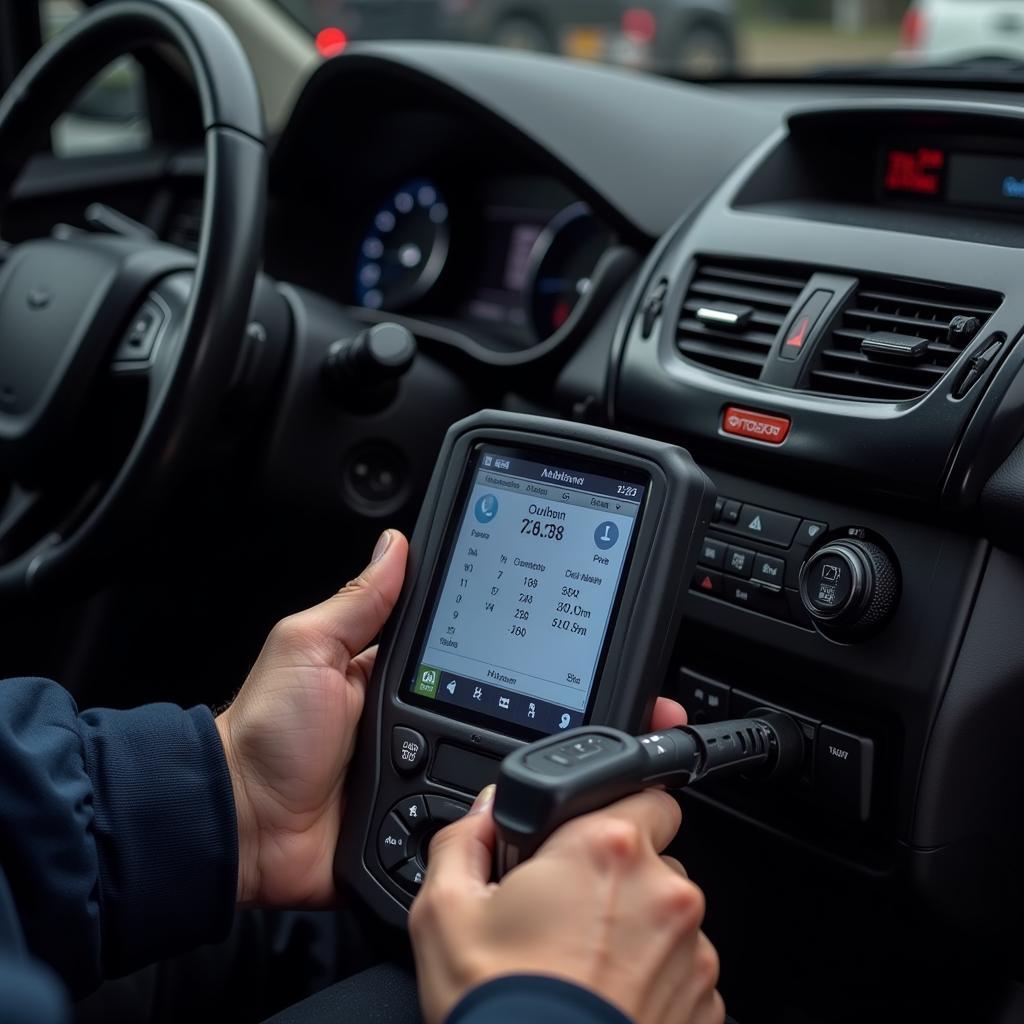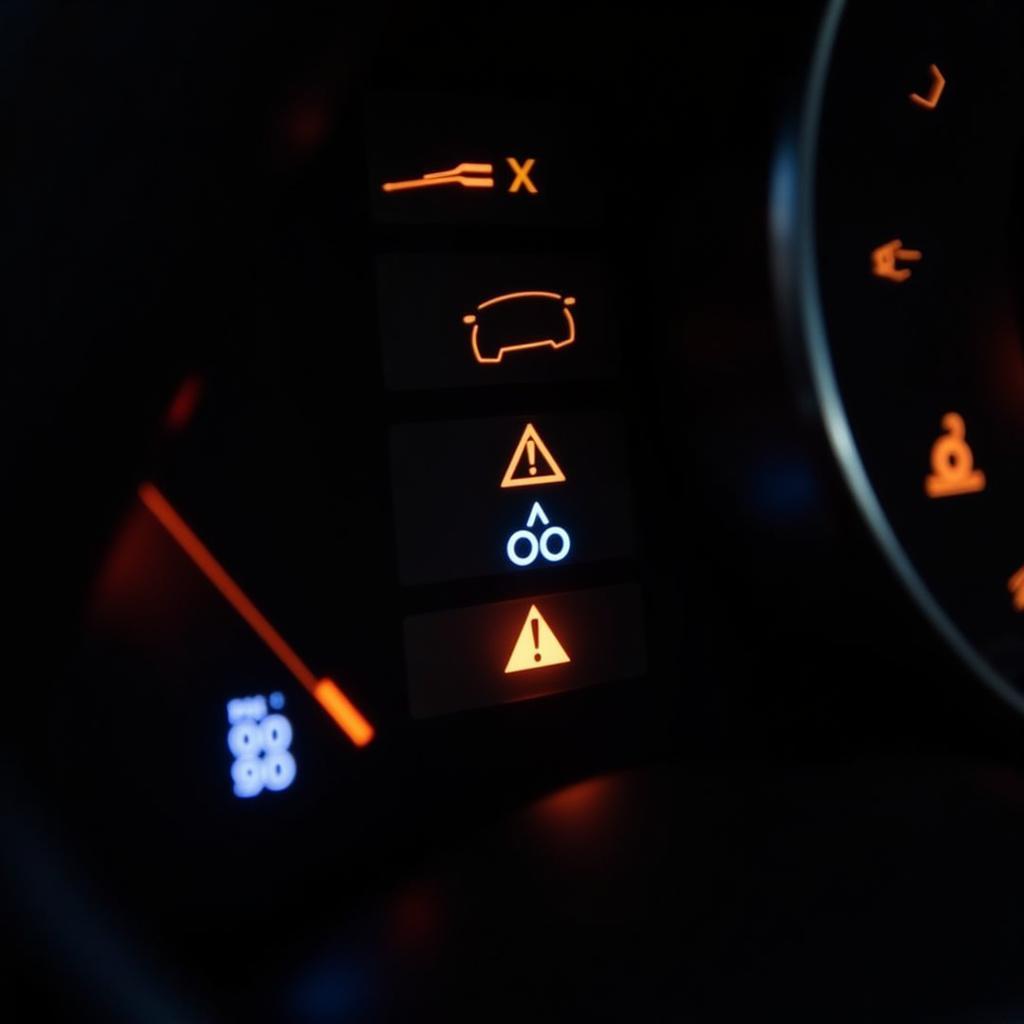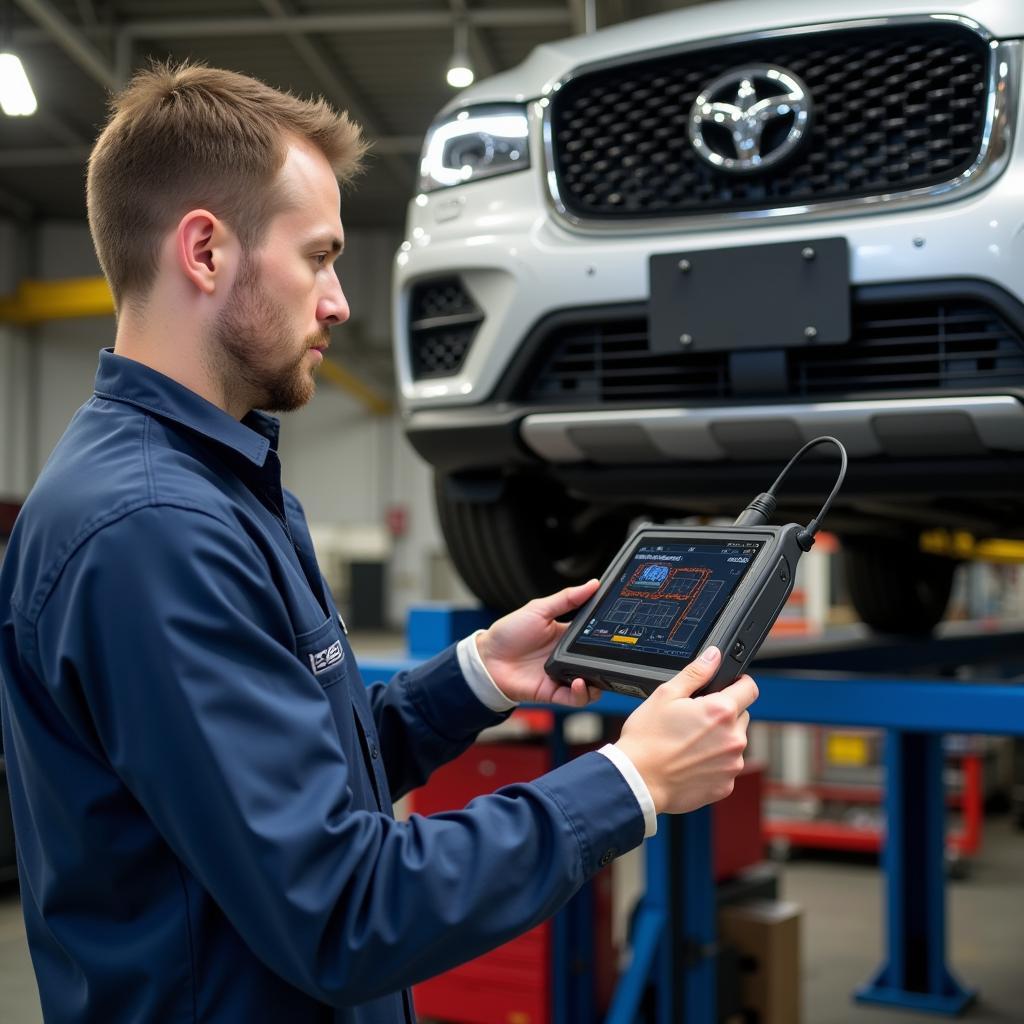Modern cars are complex machines with intricate systems that require specialized tools and knowledge to diagnose properly. When a warning light flashes on your dashboard or your engine starts making unusual noises, a Diagnostic For Car is often the first step to identifying the issue. But what exactly does car diagnostic involve, and how can you ensure you’re getting the right service for your vehicle?
Understanding Car Diagnostics
A car diagnostic, simply put, is a process of using electronic equipment to communicate with your car’s computer system. This system, also known as the On-Board Diagnostics (OBD) system, continuously monitors various components and records data about their performance. When a problem is detected, the OBD system stores a fault code, which can then be retrieved and interpreted during a diagnostic scan.
 Car Diagnostic Tools
Car Diagnostic Tools
What Does a Car Diagnostic Tell You?
A car diagnostic can reveal a wealth of information about your vehicle’s health, ranging from minor issues to major mechanical problems. Some common problems that a diagnostic can help identify include:
- Engine Issues: Misfires, low compression, faulty sensors (oxygen, MAF, etc.)
- Transmission Problems: Slipping gears, rough shifting, solenoid malfunctions
- Brake System Faults: ABS issues, brake fluid leaks, worn brake pads
- Emissions Control Problems: Faulty catalytic converter, EVAP system leaks
- Electrical System Malfunctions: Battery issues, alternator problems, wiring faults
- Airbag System Faults: Sensor issues, deployment problems
 Car Dashboard Warning Lights
Car Dashboard Warning Lights
Types of Car Diagnostics
Car diagnostics can be performed at different levels of complexity:
- Basic Code Reading: This involves retrieving and displaying the stored fault codes from the OBD system. While simple, it provides a starting point for further investigation.
- Live Data Analysis: This goes a step further by accessing real-time data from various sensors and components, allowing for a more in-depth understanding of the vehicle’s performance.
- Advanced Diagnostics: This level often involves specialized software, tools, and expertise to diagnose complex electronic systems, module programming, and network communication issues.
Why Choose a Professional Car Diagnostic?
While DIY car diagnostic tools are available, opting for a professional service offers several advantages:
- Expertise and Experience: Professional mechanics undergo extensive training and have hands-on experience in diagnosing and interpreting complex vehicle issues.
- Advanced Equipment: Professional garages invest in sophisticated diagnostic tools that can access a wider range of data and perform more comprehensive tests.
- Accurate Diagnosis: A professional diagnosis is less prone to misinterpretations, saving you time and money on unnecessary repairs.
- Comprehensive Reports: You typically receive a detailed report outlining the identified problems, potential causes, and recommended solutions.
 Mechanic Inspecting Car with Diagnostic Tool
Mechanic Inspecting Car with Diagnostic Tool
When Do You Need a Car Diagnostic?
It’s generally recommended to have your car diagnosed:
- When a Warning Light Appears: This is your car’s way of signaling a potential problem that needs attention.
- Before Buying a Used Car: A pre-purchase inspection, including a diagnostic scan, can reveal hidden problems and help you make an informed decision.
- Regularly as Part of Maintenance: Just like regular check-ups, periodic diagnostics can help identify minor issues before they escalate into major repairs.
Finding Reliable Car Diagnostic Services
When choosing a car diagnostic service, consider the following factors:
- Reputation and Reviews: Look for reputable garages with positive customer feedback and a track record of providing quality service.
- Certifications and Expertise: Ensure the mechanics are ASE certified or have equivalent qualifications and experience in working with your car make and model.
- Transparency and Communication: Choose a garage that communicates clearly, explains the diagnostic process, and provides detailed reports.
Conclusion
Car diagnostics play a crucial role in maintaining the health and longevity of your vehicle. By understanding the process, benefits, and factors to consider when choosing a service provider, you can make informed decisions to keep your car running smoothly. Remember, a timely and accurate diagnosis can save you from costly repairs and ensure a safe and enjoyable driving experience.
If you’re experiencing car trouble or simply want to ensure your vehicle is in top shape, book a car diagnostic with a trusted mechanic today.
FAQs about Car Diagnostics
1. How much does a car diagnostic cost?
The cost of a car diagnostic can vary depending on factors like your location, the complexity of the issue, and the garage’s hourly rate. On average, you can expect to pay between $80 and $150 for a basic diagnostic scan.
2. Will a car diagnostic fix the problem?
No, a car diagnostic is like a detective gathering clues. It identifies the problem but doesn’t fix it. Repairs are necessary after the diagnosis.
3. Can I do a car diagnostic myself?
While DIY diagnostic tools are available, they may not be as comprehensive as professional equipment. If you’re not familiar with car mechanics, it’s best to leave it to the experts.
4. How often should I get a car diagnostic?
It’s a good practice to get a car diagnostic at least once a year or every 12,000 miles, whichever comes first, as part of your regular car maintenance routine.
5. What is an OBD-II port and where can I find it in my car?
The OBD-II port is a standardized 16-pin connector usually located under the dashboard on the driver’s side. It allows diagnostic tools to communicate with your car’s computer system.
6. Can a car diagnostic detect problems with my tires?
No, car diagnostics primarily focus on the electronic systems and components of your vehicle. Tire issues require a separate inspection.
7. If my check engine light is off, do I still need a car diagnostic?
While a check engine light is a clear indicator of a problem, some issues might not trigger the light immediately. It’s still a good idea to get a diagnostic if you notice unusual performance from your car.
Looking for Affordable Diagnostic Options?
- Find cheap diagnostic for cars in your area.
- Check out our guide on diagnostic for car cous in bolton.
Need help with electrical issues?
- Explore our resources on electrical diagnostic for cars.
- Locate reliable electrical diagnostic for cars near me.
Get in touch with us via WhatsApp: +1(641)206-8880, or email us at: [email protected]. Our dedicated customer support team is available 24/7 to assist you with any queries or concerns.

Leave a Reply